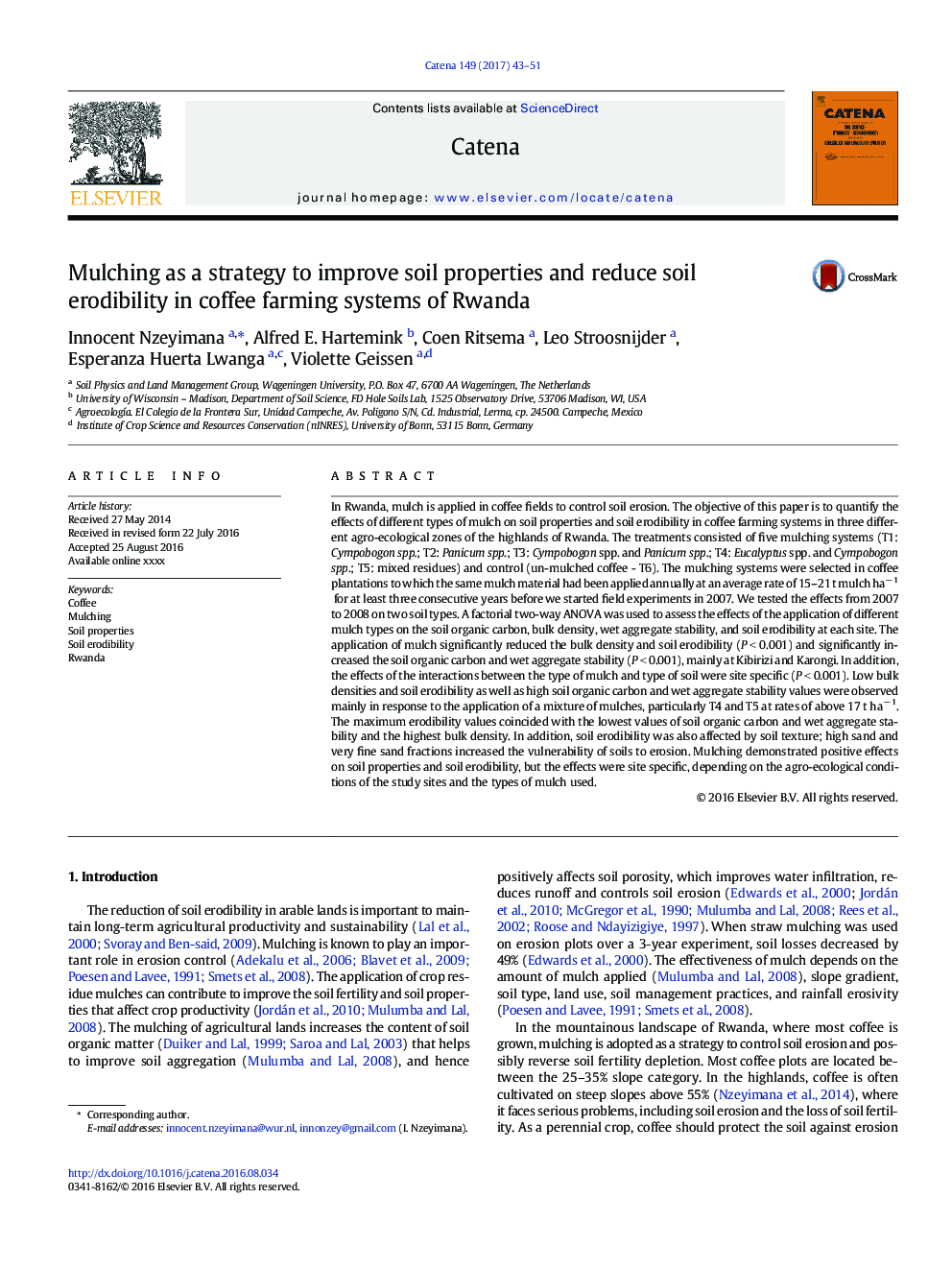| کد مقاله | کد نشریه | سال انتشار | مقاله انگلیسی | نسخه تمام متن |
|---|---|---|---|---|
| 4570846 | 1332079 | 2017 | 9 صفحه PDF | دانلود رایگان |
• Mulch effects improved soil properties, which indirectly reduced soil erodibility
• Effects were site specific, mainly controlled by the type of mulch and site agro-ecological conditions.
• Mixed crop residues were the best performance mulching system.
• Soil erodibility was influenced by soil texture and the particle size fractions.
• Sand, very fine sand and silt fractions affected soil erodibility the most.
In Rwanda, mulch is applied in coffee fields to control soil erosion. The objective of this paper is to quantify the effects of different types of mulch on soil properties and soil erodibility in coffee farming systems in three different agro-ecological zones of the highlands of Rwanda. The treatments consisted of five mulching systems (T1: Cympobogon spp.; T2: Panicum spp.; T3: Cympobogon spp. and Panicum spp.; T4: Eucalyptus spp. and Cympobogon spp.; T5: mixed residues) and control (un-mulched coffee - T6). The mulching systems were selected in coffee plantations to which the same mulch material had been applied annually at an average rate of 15–21 t mulch ha− 1 for at least three consecutive years before we started field experiments in 2007. We tested the effects from 2007 to 2008 on two soil types. A factorial two-way ANOVA was used to assess the effects of the application of different mulch types on the soil organic carbon, bulk density, wet aggregate stability, and soil erodibility at each site. The application of mulch significantly reduced the bulk density and soil erodibility (P < 0.001) and significantly increased the soil organic carbon and wet aggregate stability (P < 0.001), mainly at Kibirizi and Karongi. In addition, the effects of the interactions between the type of mulch and type of soil were site specific (P < 0.001). Low bulk densities and soil erodibility as well as high soil organic carbon and wet aggregate stability values were observed mainly in response to the application of a mixture of mulches, particularly T4 and T5 at rates of above 17 t ha− 1. The maximum erodibility values coincided with the lowest values of soil organic carbon and wet aggregate stability and the highest bulk density. In addition, soil erodibility was also affected by soil texture; high sand and very fine sand fractions increased the vulnerability of soils to erosion. Mulching demonstrated positive effects on soil properties and soil erodibility, but the effects were site specific, depending on the agro-ecological conditions of the study sites and the types of mulch used.
Journal: CATENA - Volume 149, Part 1, February 2017, Pages 43–51
